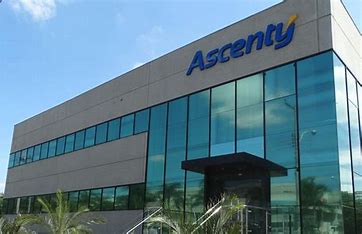Company plans to expand in Brazil and Chile and enter in Colombia
11/09/2022

The data center infrastructure company Ascenty will invest R$1.5 billion in the construction of five new data centers in Brazil, Chile, and Colombia, starting at the end of 2023. “We are reinvesting 100% of our return in expansion,” CEO Chris Torto told Valor.
According to him, two thirds of the investments comes from the company’s own cash flow and contributions from controlling shareholders – the U.S.-based data center company Digital Realty and the Canadian asset manager Brookfield Infraestruture.
The remaining R$517.4 million ($100 million) come from a R$4.8 billion ($925 million) loan taken by Ascenty in March from Brazilian and international banks to expand existing data centers, increase its fiber optic network, and build new units in Brazil by 2024.
In 2023, the data center segment is expected to gross $3.8 billion in Latin America, said Luciano Ramos, research and consulting manager at IDC Brasil. “This means a growth of 9.2% compared to 2022,” he said.
This year, according to the CEO, the company will disburse R$1.4 billion for data center expansion. In 2021, R$1.5 billion were set aside to expand the structure.
The new data centers in São Paulo and Bogotá will start operating by the end of 2023. The company will activate the second facility in São Paulo, the second one in Bogotá, and one more in Santiago by the end of 2024.
With the expansion, Mr. Torto said, the company meets the demand of its three main customer profiles: cloud service providers, corporations, and telecommunications companies.
Ascenty’s focus is on the cloud computing service providers of large technology companies. “They are our flagship and are expanding worldwide,” Mr. Torto said.
In Latin America, the executive says he does not feel the impact of slower growth in cloud computing revenues of giants like Amazon, the market leader, and Microsoft in the third quarter.
“Maybe the United States and Europe will feel the slowdown because they are more mature markets, but in Latin America we won’t see that, at least in the next six to 12 months,” he said. “If we have a very strong global recession, demand may fall.”
Microsoft’s revenue from its Azure cloud computing platform grew 24% to $25.7 billion in the company’s fiscal first quarter. The advance was lower than the 36% rise in the third quarter of 2021. Amazon Web Services’s (AWS) third-quarter revenue advance of 27.5%, to $20.5 billion, meanwhile, was the slowest since 2014, when Amazon began releasing the earnings results for its cloud business.
Other customer profiles in Ascenti’s sights are corporations that usually use the structure to allocate their equipment, managing cloud services remotely, and telecommunications companies, which prepare their structures for applications such as the Internet of Things (IoT), artificial intelligence, big data, and virtual reality.
Born in Boston and settled in Brazil for more than 30 years, Mr. Torno also notes that the electoral race has not slowed down the local demand either. “It is the first time in 35 years that I do not see an impact of the election in the country,” he said. “Clearly, I see a more mature country.”
Ascenty’s CEO is concerned with the global shortage of semiconductors, which has extended the delivery deadlines of high-capacity generators, which are key to ensure that data centers remain active in case of power outage. With the shortage of components, he said, the delivery time for generators coming from China, Europe, and the United States, which used to be a few months, has risen to nine to 12 months. “If the equipment comes from China, the current impact is usually greater because of the pandemic control in the country, but equipment coming from Europe and the U.S. also face a 50% increase in delivery time,” he said.
Currently, the company has 23 data centers in operation, 19 of them in Brazil, two in Chile and two in Mexico, and more 10 under construction in Latin America, considering the operations announced Tuesday by the company.
Competitors Scala, Odata and Equinix are also among the large companies in the sector expanding in Brazil and other Latin American countries.
Scala Data Centers, from the U.S.-based group DigitalBridge, is advancing in the construction of new data centers in Brazil, Chile, Colombia, Mexico and Peru. On Tuesday, the company unveiled an agreement with Brazilian power distributor Enel to guarantee a supply of more than 1 gigawatt for its operations.
In March, Equinix announced a R$17 million investment in the expansion of its fifth data center in São Paulo by the end of the year, while Brazilian Odata received a R$181 million ($35 million) loan from the World Bank in August for data center expansion in Mexico. The loan comes on top of another one, of $ 30 million, announced in January for expansion in Latin America.
*By Daniela Braun — São Paulo
Source: Valor International
